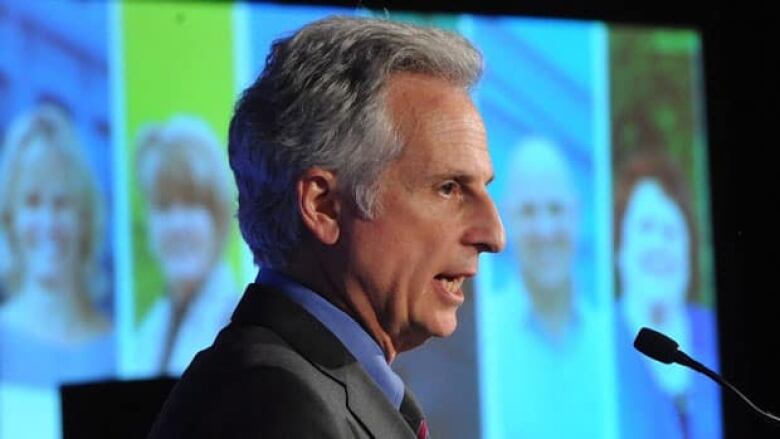Stephen Tynes's psychiatrist right to inform police after Dalhousie threats, says prof
Dr. David Goldboom says potential Dalhousie threat averted by prompt disclosure to Halifax police
It was within the rights of a Halifax doctor to disclose confidential patient information about a medical student to police after becoming concerned about possible threats to Dalhousie University faculty and students, a University of Toronto psychiatry professor says.
Dr. David Goldbloom says confidentiality between doctor and patient is "notcompletely sacrosanct" that it can be breached when a clear threat to the public exists.

"There are very clear guidelines provided by the Canadian Medical Association," Goldbloom said.
"A physician can encounter circumstances where the duty to protect really trumps the duty to keep information confidential."
Goldbloom spoke with CBC Nova Scotia'sMaritime Noon after search warrant documents allege Stephen Gregory Tynesmet with a psychiatrist on Aug. 20, and told the doctor he would stab the associate dean of undergraduate medical education and her daughter, who was also his classmate.
- Rifles seized from Dal student are common, group says
- Stephen Tynes death-threat charges behind Dal security boost
- Dalhousie medical student charged, suspended from university
The guidelines, saysGoldbloom, have legal precedent andback up thedecision made by Tynes's psychiatrist.
"This has been confirmed at the level of Supreme Court of Canada, where they said that, you know, the danger to public safety could form the necessary basis for breaching confidentiality," says Goldbloom. "So it's not like confidentiality is absolute it's relative."
A doctor's decision to disclose is a mix of ethics and law, Goldbloom says.
"There are laws that allow physicians and, at times, oblige physicians to breach confidentiality. It's also an ethical issue that I would say, even if you're unfamiliar with the ethical or legal requirements, it's ultimately at a personal level, it's a how-you-sleep-at-night question."
Should patients withhold true feelings?
Goldbloomsays he's happy a potential tragedy at Dalhousie University was avertedby the prompt disclosure to Halifax police of the possible threat.
Having negative thoughts towards others is common, he says, but threatening actionis a well-defined line to cross.
"Increasingly, I would say, psychiatrists inform patients at the beginning of an assessment that it's a confidential process, that there are circumstances that may lead that physician to breach confidentiality."
Psychiatrists aren't the only doctors allowed to breach confidentiality, saysGoldbloom. Other physicians may disclose private information if:
- Achild is at risk.
- A province requiresmandatory reporting.
- A patient has a condition that may cause driving impairments.













_(720p).jpg)


 OFFICIAL HD MUSIC VIDEO.jpg)
.jpg)



























































































